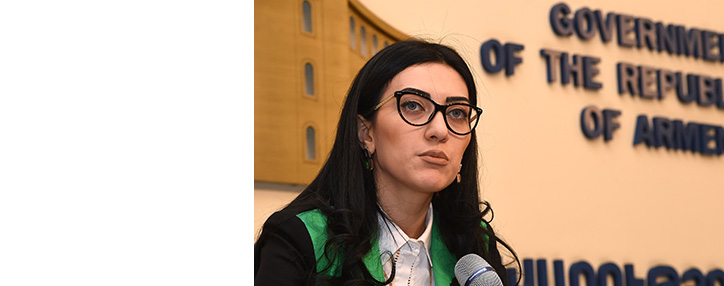Another commission for combating corruption to be established in Armenia
09.06.2017,
14:21
Armenia’s National Assembly has unanimously passed a set of amendments to the anti-corruption law on Friday to establish a commission for struggling against corruption and an institution of anonymous informants.

YEREVAN, June 9. /ARKA/. Armenia’s National Assembly has unanimously passed a set of amendments to the anti-corruption law on Friday to establish a commission for struggling against corruption and an institution of anonymous informants.
Arpine Hoivhannisyan, vice speaker of the National Assembly, presenting the bill to MPs, said the package implies the expansion of the list of the officials who must declare their income from the present 500 high-ranking officials to 2,200.
“Now also judges, investigators, bailiffs, special services officials as well as other high-ranking officials and members of different state committees that consider appeals of court decisions will be included in the list,” she said.
Besides, the draft law also specifies the concept ‘family’ stating that members of the officials’ families ought to declare their income as well. This applies to spouses, minor children, persons in such officials’ care and any person living together with them.
Arpine Hovhannisyan said the draft law calls also for the establishment of anonymous informants and an electronic platform for citizens to inform about corruption cases. She said the draft law defines an informer as a person (or organization) that acting in good faith, conveys information about corruption phenomena or other damage to public interests to law-enforcement bodies.
The draft law sets three types of information - internal, external and public information. The internal one means that an employee may report anonymously about a corruption case committed by his superior, the second type is when the informant reports a corruption case to appropriate law-enforcement bodies and the third type means informing public through media or other sources.
The informant will be protected under the same conditions as the participants in the criminal proceedings, and administrative responsibility is provided for officials who will fail to check up or taken into account all relating reports.
The minister also noted that changes are made to the Criminal Code, in particular, Article 31 provides for punishment for killing an informant or related persons, for damaging or threatening their health or property, as well as for illegally publishing their personal data. --0---
Arpine Hoivhannisyan, vice speaker of the National Assembly, presenting the bill to MPs, said the package implies the expansion of the list of the officials who must declare their income from the present 500 high-ranking officials to 2,200.
“Now also judges, investigators, bailiffs, special services officials as well as other high-ranking officials and members of different state committees that consider appeals of court decisions will be included in the list,” she said.
Besides, the draft law also specifies the concept ‘family’ stating that members of the officials’ families ought to declare their income as well. This applies to spouses, minor children, persons in such officials’ care and any person living together with them.
Arpine Hovhannisyan said the draft law calls also for the establishment of anonymous informants and an electronic platform for citizens to inform about corruption cases. She said the draft law defines an informer as a person (or organization) that acting in good faith, conveys information about corruption phenomena or other damage to public interests to law-enforcement bodies.
The draft law sets three types of information - internal, external and public information. The internal one means that an employee may report anonymously about a corruption case committed by his superior, the second type is when the informant reports a corruption case to appropriate law-enforcement bodies and the third type means informing public through media or other sources.
The informant will be protected under the same conditions as the participants in the criminal proceedings, and administrative responsibility is provided for officials who will fail to check up or taken into account all relating reports.
The minister also noted that changes are made to the Criminal Code, in particular, Article 31 provides for punishment for killing an informant or related persons, for damaging or threatening their health or property, as well as for illegally publishing their personal data. --0---



